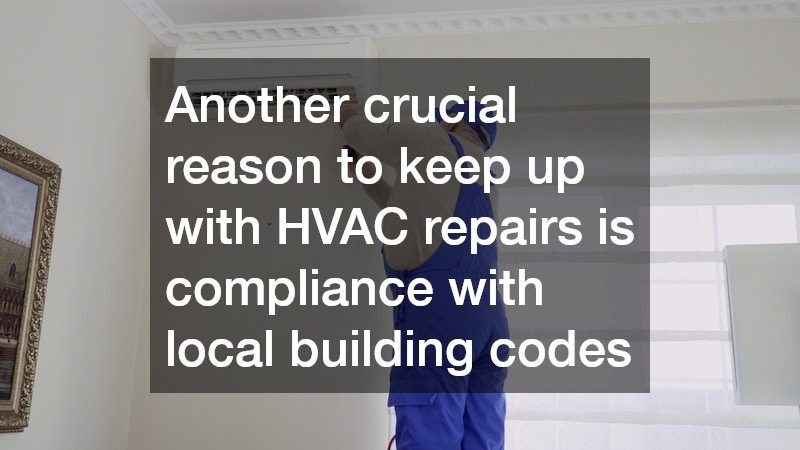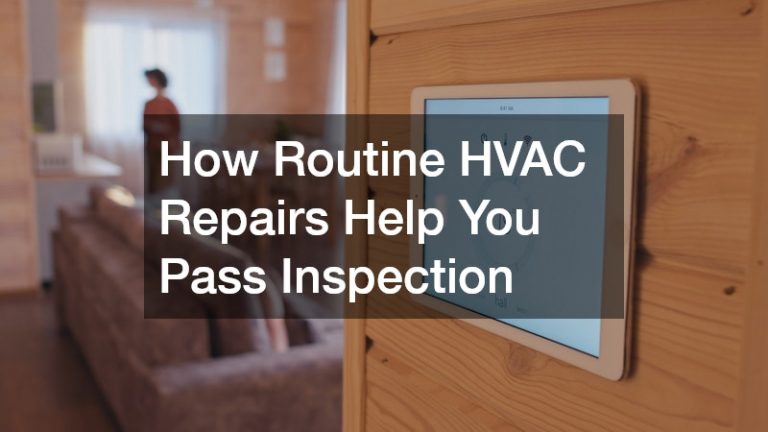When it comes to home maintenance, your heating, ventilation, and air conditioning (HVAC) system plays a vital role in comfort, safety, and energy efficiency. What many homeowners don’t realize is that keeping up with routine HVAC repairs can also make a major difference when it’s time for a property inspection. Whether you’re selling your home, renting it out, or undergoing a safety evaluation, inspectors look closely at the condition and functionality of your HVAC system.
A well-maintained unit not only ensures a comfortable indoor environment but also helps you avoid costly violations or delays. By investing in routine HVAC repairs, you’re preparing your system—and your home—to pass inspection with flying colors.
Ensuring System Efficiency
One of the primary factors inspectors evaluate during an HVAC inspection is the efficiency of the system. If your unit is struggling to heat or cool effectively, it’s a clear sign of underlying issues such as clogged filters, worn belts, or refrigerant leaks. Routine HVAC repairs address these problems early, ensuring that the system operates at peak performance. An efficient system not only satisfies inspection requirements but also reduces energy consumption, lowering monthly utility bills. Keeping your HVAC in top shape demonstrates responsible homeownership and reflects positively during any formal inspection process.
Meeting Safety Standards
Safety is a top priority for inspectors, especially when it comes to HVAC systems that involve gas lines, electrical wiring, and ventilation components. Routine repairs and tune-ups help identify and correct potential hazards before they become serious problems. For example, technicians can detect gas leaks, frayed wires, or improper exhaust ventilation that could pose health and safety risks. By maintaining your HVAC system regularly, you ensure that it meets all safety codes and standards, protecting both your home and the people living in it. A safe system is not only essential for passing inspection but also for maintaining peace of mind year-round.
Improving Air Quality
Inspectors also consider the overall air quality in your home, which is closely tied to the performance of your HVAC system. Dirty air filters, blocked ducts, and faulty humidifiers can all impact indoor air quality, leading to dust buildup, unpleasant odors, or even mold growth. Routine HVAC repairs and maintenance help keep air filters clean, ducts clear, and airflow balanced. These improvements ensure that the system properly circulates fresh air throughout the home. Clean, well-ventilated spaces not only make a positive impression on inspectors but also create a healthier living environment for everyone.
Preventing System Failures
Unexpected HVAC breakdowns often happen when systems are neglected, and these failures can become major red flags during inspections. If an inspector discovers that your heating or cooling system is malfunctioning, it can delay approvals, lower property value, or require immediate replacement before a sale can proceed. Routine repairs prevent small issues—like worn components or loose connections—from turning into large, costly failures. By staying proactive, you protect your investment and show inspectors that the system has been consistently cared for. Preventive maintenance today saves you from major headaches tomorrow.
Extending Equipment Lifespan
Regular repairs and maintenance can significantly extend the life of your HVAC system, which is another aspect inspectors take into consideration. Systems that show signs of premature wear or poor upkeep can raise concerns about long-term reliability. On the other hand, a well-maintained unit demonstrates that the homeowner has taken the proper steps to preserve its condition. Replacing filters, cleaning coils, and repairing parts as needed helps prevent unnecessary strain on the system. As a result, your HVAC operates smoothly for years to come, reducing the likelihood of costly replacements and ensuring your system performs reliably during inspection.
Complying With Local Codes
Another crucial reason to keep up with HVAC repairs is compliance with local building codes. Inspectors check to ensure that heating and cooling systems meet current standards for installation, performance, and safety. Issues such as improper venting, inadequate insulation, or outdated components can lead to failed inspections or required corrections. Routine service ensures that your HVAC unit remains up to date and code-compliant. Technicians are familiar with evolving regulations and can make the necessary adjustments before inspection day, saving you time and preventing potential penalties.
Increasing Home Value
If you’re preparing to sell your home, a properly maintained HVAC system can be a major selling point. Buyers and inspectors alike appreciate homes with efficient, safe, and well-documented HVAC care. Routine repairs not only improve functionality but also provide a paper trail of maintenance history—proof that the system has been properly serviced over the years. This transparency builds confidence among buyers and inspectors, often leading to smoother transactions and stronger offers. An HVAC system in good condition reflects overall home quality and responsible ownership.
Passing a home inspection doesn’t have to be stressful—especially when your HVAC system is well-maintained. Routine repairs keep your heating and cooling system efficient, safe, and compliant with local codes, while also protecting indoor air quality and preventing costly breakdowns. These regular checkups extend the life of your equipment, improve energy performance, and enhance your home’s overall value. By making HVAC maintenance a consistent priority, you’re not just preparing for inspections—you’re ensuring a safer, more comfortable, and more dependable home for years to come.

